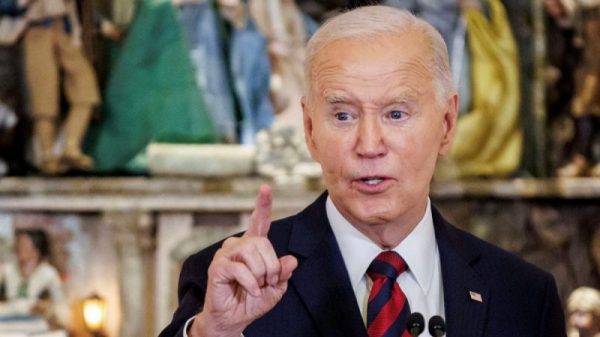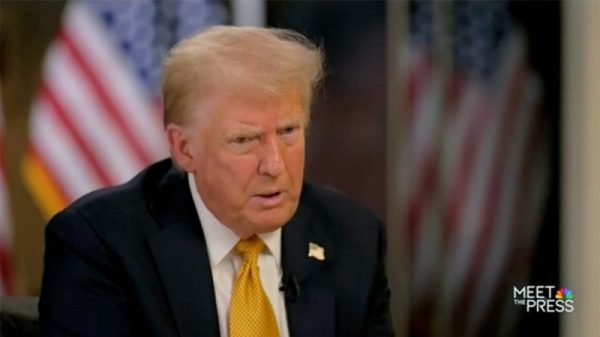The story of the 2020 presidential election was uncomplicated. Donald Trump was the sitting president, one who had spent three years tending to the political priorities of his Republican base and the fourth year struggling to manage a viral pandemic and social unrest. The challenger, Joe Biden, didn’t have to do a whole lot; being not-Trump was probably enough for any Democratic candidate to have prevailed. So Biden prevailed.
This isn’t simply some clever narrative. Polling showed that Biden supporters heavily — and at times, primarily — described their intended votes as centering less on support for the Democrat than opposition to the incumbent.
That was the pattern earlier this year, too. In June, polling conducted by YouGov for CBS News found that 54 percent of those who planned to support Biden’s reelection picked him because he wasn’t Trump. And that was before Biden’s disastrous performance later that month in his only debate against the former president. A few days before Biden dropped out in favor of Vice President Kamala Harris, the CBS-YouGov poll showed similar numbers.
But then Harris became the Democratic nominee. And with that change came another one: supporters of the Democratic candidate who are primarily supportive of that candidate, rather than opposed to the Republican.
In the first CBS-YouGov poll after the candidate switch, the numbers weren’t that different from the one taken a few weeks prior. But in the most recent poll, released over the weekend, 43 percent of Harris supporters said they support her because they like her, while 37 percent said their vote is mostly about opposing Trump. Those numbers are similar to where Biden was in March, when he was still enjoying some spillover enthusiasm from the primaries, but the gap between the two is larger than at any point since then.
The views of Trump supporters, meanwhile, have been consistent: Most of his voters are backing him because they like him. Only about 3 in 10 say their support stems from wanting to keep Harris out of the White House.
Among members of the candidates’ parties, enthusiasm for the candidates is stronger. Fully half of Democrats say they like Harris, compared to 3 in 10 who said the same about Biden in July. Then, 4 in 10 said they planned to support Biden because he wasn’t Trump. Now, only about a quarter say that of Harris. Among Republicans, two-thirds say their support for Trump is because they like him.
Interestingly, there are no gender divides on this question among either Harris or Trump supporters. It’s not the case, for example, that men are more likely to say they support Harris because they oppose Trump, as might be expected given the broader gender divide in the contest.
There is a notable difference on the pro-Trump side. Nearly two-thirds of Trump supporters without college degrees say their support is because they like Trump. Among Trump supporters with a college degree, just under half cite that reason. Instead, a third say their support for Trump is mostly offered in opposition to Harris.
There is no similar divide by education among Harris supporters, though there is one by race. Black and Hispanic Harris supporters are more likely to attribute their planned vote to enthusiasm for Harris. White Harris supporters are evenly divided between supporting Harris because they like her and because she isn’t Trump.
It’s certainly not necessarily a bad thing for Harris to have a large chunk of her support derive from opposition to Trump. After all, a message her campaign is elevating is that Trump is a distinct threat to American democracy, a message that is echoed in the support of prominent Republicans such as former Wyoming congresswoman Liz Cheney. Cheney may like Harris, but her endorsement of the Democrat obviously is mostly about opposing Trump.
What the data shows, instead, is that her support isn’t only about opposing Trump — likely a good sign in a race that will be determined by which voters are most motivated to cast a ballot.


































